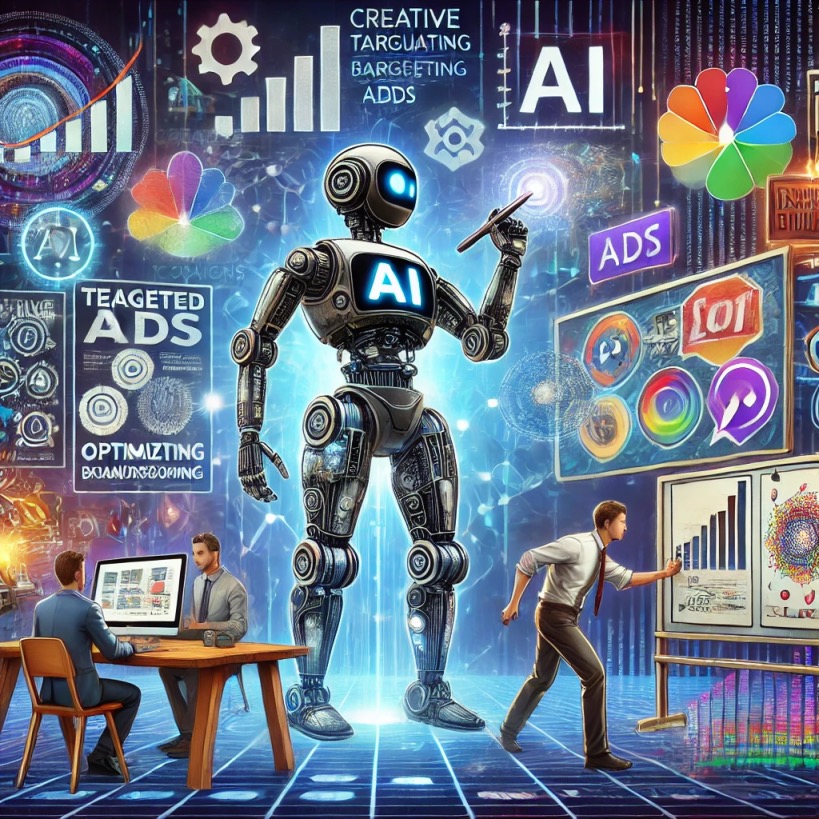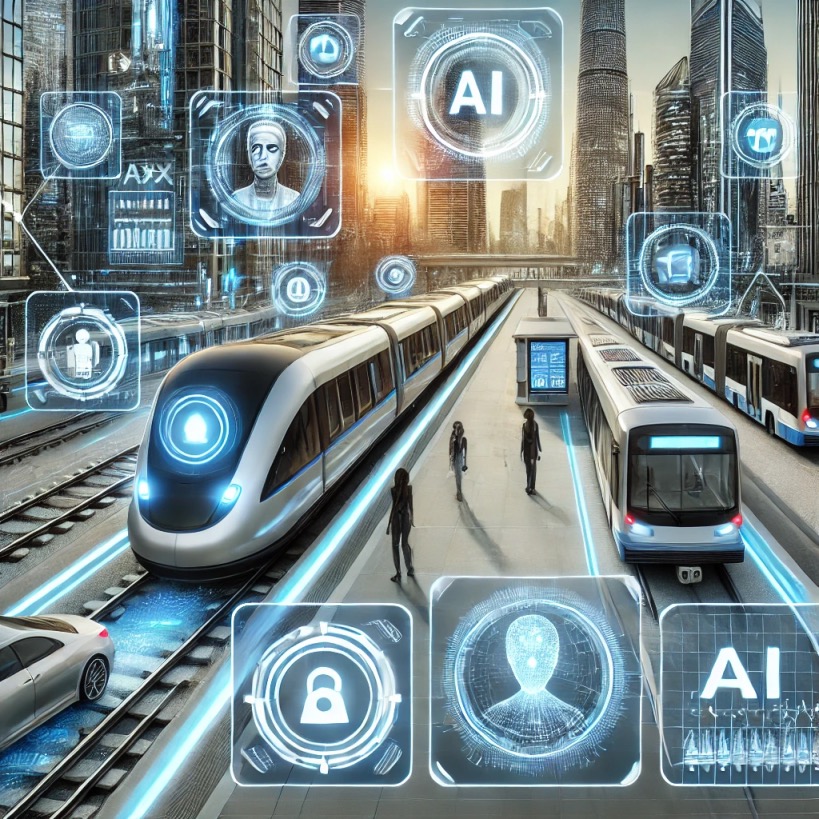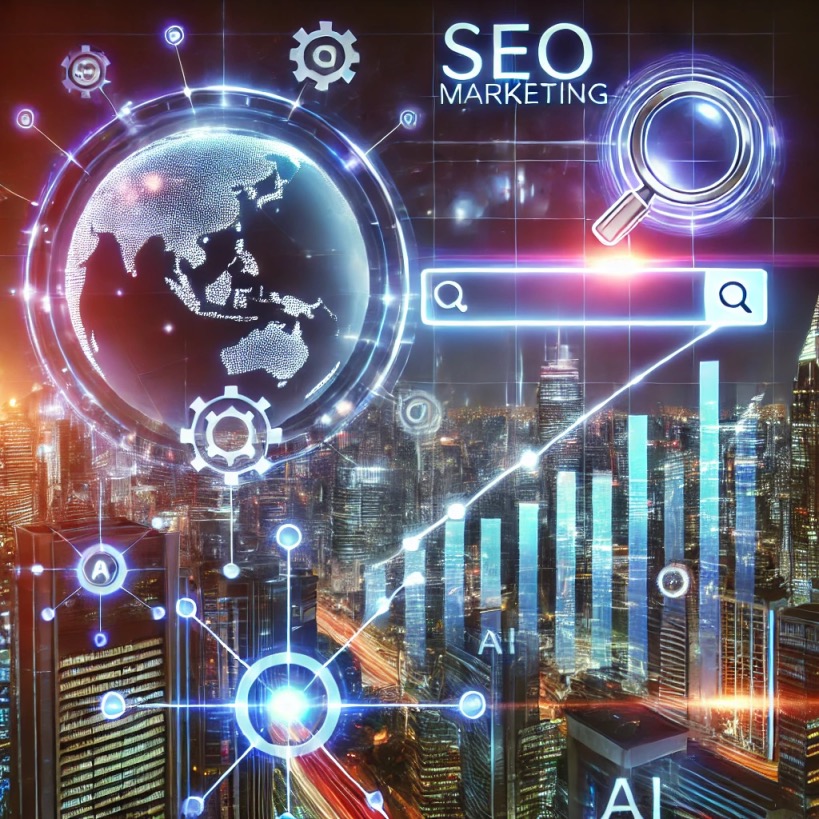Artificial Intelligence (AI) is transforming the marketing and advertising industries by enabling more personalized, efficient, and data-driven campaigns. From automating repetitive tasks to predicting consumer behavior, AI is reshaping how brands connect with their audiences. Here’s a comprehensive look at how AI is changing the face of marketing and advertising:
1. Hyper-Personalization
AI allows marketers to deliver highly personalized experiences to consumers based on their preferences, behaviors, and past interactions.
- Behavioral Targeting : AI analyzes user data (e.g., browsing history, purchase patterns) to create tailored ads and content.
- Example: Netflix uses AI to recommend shows and movies based on individual viewing habits.
- Dynamic Content : AI adjusts website or email content in real-time to match the interests of each visitor.
- Segmentation : AI divides audiences into micro-segments, ensuring that the right message reaches the right person at the right time.
2. Predictive Analytics
AI helps marketers anticipate customer needs and trends by analyzing historical and real-time data.
- Customer Lifetime Value (CLV) : AI predicts which customers are likely to become long-term loyalists, allowing brands to focus their efforts on high-value prospects.
- Churn Prediction : AI identifies customers who may stop engaging with a brand, enabling proactive retention strategies.
- Trend Forecasting : AI detects emerging trends in consumer behavior, helping brands stay ahead of the competition.
3. Programmatic Advertising
AI automates the buying and placement of digital ads, making ad campaigns more efficient and effective.
- Real-Time Bidding (RTB) : AI algorithms bid on ad inventory in milliseconds, ensuring ads are shown to the most relevant audiences.
- Ad Optimization : AI continuously tests and optimizes ad creatives, placements, and targeting to maximize ROI.
- Cross-Channel Campaigns : AI ensures consistent messaging across platforms like social media, search engines, and display networks.
4. Chatbots and Conversational Marketing
AI-powered chatbots are revolutionizing customer engagement by providing instant, personalized responses.
- 24/7 Support : Chatbots handle inquiries, resolve issues, and guide users through the sales funnel without human intervention.
- Example: Sephora’s chatbot provides product recommendations and booking services for in-store appointments.
- Lead Qualification : AI qualifies leads by asking targeted questions and scoring potential customers based on their responses.
- Natural Language Processing (NLP) : Advanced chatbots understand context and sentiment, delivering more human-like interactions.
5. Content Creation and Curation
AI is streamlining content creation and curation, saving time while maintaining quality.
- Automated Content Generation : Tools like Jasper and Copy.ai use AI to write blog posts, social media captions, and ad copy.
- Visual Content : AI tools like Canva and Runway ML help design graphics, videos, and animations with minimal effort.
- Content Recommendations : AI suggests relevant articles, videos, or products to users based on their interests, increasing engagement.
6. Voice Search and Smart Assistants
With the rise of voice-activated devices, AI is playing a key role in optimizing for voice search and smart assistants.
- SEO for Voice Search : AI helps brands optimize their content for conversational queries used in voice searches (e.g., “What’s the best pizza near me?”).
- Smart Assistant Integration : Brands can leverage AI to create skills or actions for platforms like Amazon Alexa and Google Assistant.
- Audio Advertising : AI enables targeted audio ads on podcasts and streaming services, reaching niche audiences effectively.
7. Sentiment Analysis and Social Listening
AI monitors social media and online conversations to gauge public sentiment about brands and campaigns.
- Brand Reputation Management : AI tracks mentions of a brand and identifies positive or negative feedback, allowing companies to respond promptly.
- Crisis Detection : AI flags potential PR crises by detecting spikes in negative sentiment or viral complaints.
- Influencer Identification : AI identifies influencers whose followers align with a brand’s target audience, improving collaboration outcomes.
8. Enhanced Customer Journey Mapping
AI provides deeper insights into the customer journey, helping marketers optimize touchpoints and improve conversions.
- Funnel Analysis : AI identifies where users drop off in the sales funnel and suggests improvements.
- Attribution Modeling : AI determines which channels and tactics contribute most to conversions, guiding budget allocation.
- Omnichannel Experiences : AI ensures seamless transitions between online and offline interactions, creating a unified customer experience.
9. Augmented Reality (AR) and Virtual Reality (VR)
AI enhances immersive marketing experiences through AR and VR technologies.
- Virtual Try-Ons : AI powers virtual fitting rooms or makeup try-ons, boosting e-commerce sales.
- Example: IKEA’s AR app lets users visualize furniture in their homes before purchasing.
- Immersive Ads : AI creates interactive VR ads that engage users in unique ways.
- Event Marketing : AI-driven AR/VR experiences enhance virtual events and trade shows, attracting global audiences.
10. Fraud Detection and Ad Verification
AI combats ad fraud and ensures transparency in digital advertising.
- Click Fraud Prevention : AI detects suspicious activity, such as bots clicking on ads, and blocks fraudulent traffic.
- Ad Verification : AI ensures ads appear on reputable websites and are viewed by real humans, not bots.
- Budget Optimization : By eliminating wasted spend on fake impressions, AI improves campaign efficiency.
11. Data Privacy and Ethical Considerations
As AI becomes integral to marketing, ethical concerns around data privacy and transparency must be addressed.
- Compliance with Regulations : AI helps brands comply with data protection laws like GDPR and CCPA by managing consent and anonymizing data.
- Bias Mitigation : Marketers must ensure AI algorithms do not perpetuate stereotypes or exclude certain demographics.
- Transparency : Consumers should know when they’re interacting with AI systems, fostering trust and accountability.
Final Thoughts
AI is fundamentally changing the way marketing and advertising operate, offering unprecedented opportunities for innovation and growth. By leveraging AI, brands can deliver hyper-personalized experiences, optimize campaigns in real-time, and gain deeper insights into consumer behavior.
However, the responsible use of AI is critical. Balancing technological advancements with ethical considerations will ensure that AI continues to enhance—not undermine—the relationship between brands and consumers.
For marketers, embracing AI isn’t just an option; it’s a necessity to remain competitive in an increasingly data-driven world. As AI evolves, its impact on marketing and advertising will only grow stronger, paving the way for smarter, more impactful campaigns.



